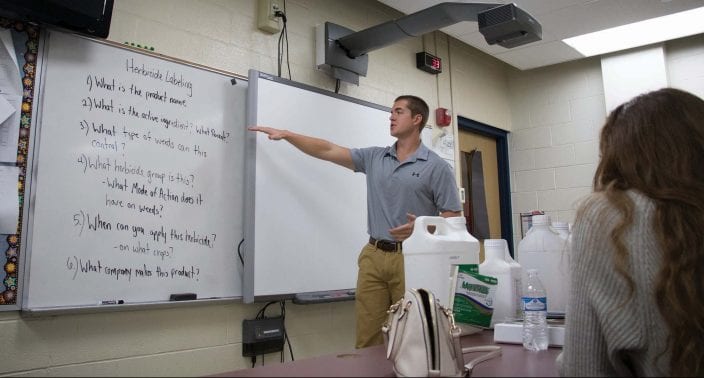Applications for Ohio Farm Bureau Health Plans now available
Members have three ways to apply: contacting a certified agent, calling 833-468-4280 or visiting ohiofarmbureauhealthplans.org.
Read MoreLarry Shanholtz still has the navy blue FFA jacket he proudly wore so many years ago around the hallways of Clinton-Massie High School. While he laughs that the jacket is now too small, he said the lessons learned in FFA and in the high school’s agriculture classes were the perfect fit for him. They served him well over the years on his Clinton County grain farm and at the meat packing plant he retired from as a maintenance worker.
“It was very helpful in my life,” said Shanholtz, a Clinton County Farm Bureau member who was president of the Clinton-Massie FFA chapter in 1965. “FFA and ag education are so much more than farming … there are so many jobs today associated with agriculture that it can really open the door to lots of opportunities.”
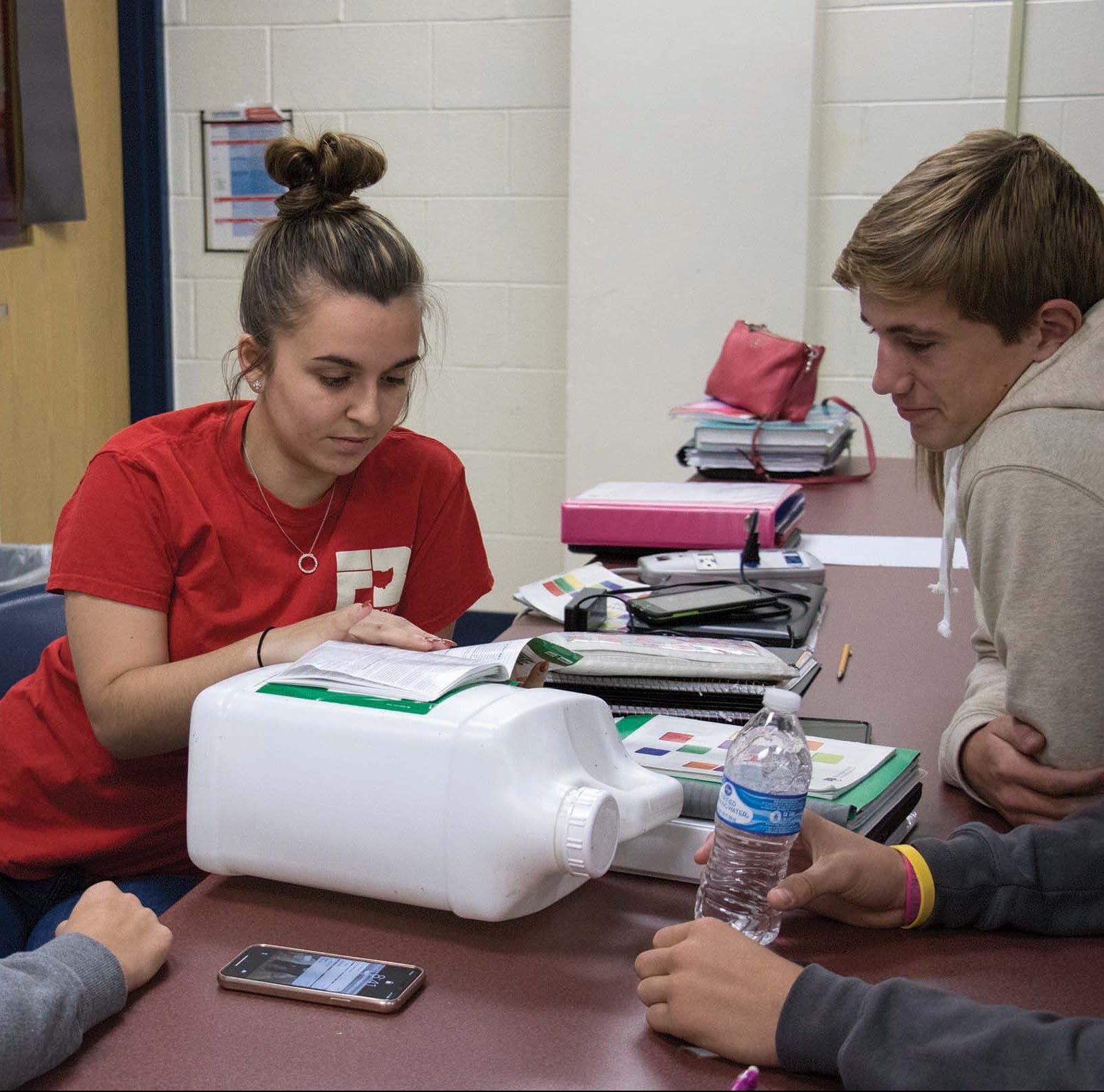
Agreeing with him is Matt Baker, superintendent of Clinton-Massie Local School District. Last year Baker brought agriculture education back to the high school, which stopped offering the classes in 1968. At the time, educators thought they should shift the focus from agriculture-related classes to industrial arts. With no longer having the support of an agriculture teacher, the FFA chapter fizzled out less than 10 years later.
Baker saw first-hand the benefits of having an FFA chapter and offering agriculture classes when he was principal of neighboring East Clinton High School for three years.
“They have a phenomenal FFA and ag program,” Baker said of East Clinton. “I saw how it helped students with everything from speaking confidence to hands-on learning like small engine design. They spend long hours working together on their projects and build up such a great camaraderie. When I was at East Clinton, I always thought it was weird that Clinton-Massie didn’t have an ag program.”
Baker was determined to change that when he became Clinton-Massie superintendent. He successfully applied for career technical funding through the state, which generated enough money to add a part-time agriculture teacher. Hired was Tyler Uetrecht, a 2013 Clinton-Massie graduate who grew up on a nearby farm that he helps his family run today. The high school agriculture classes have been so popular that students have been closed out of them and an introduction to agriculture class was added this year for 6th grade students.
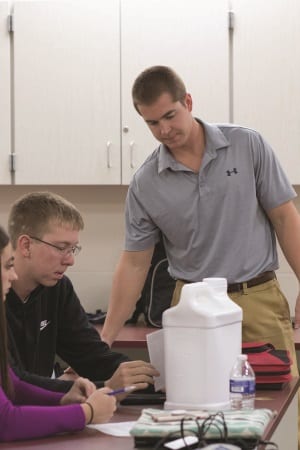
“We’re filtering young kids into the program to get them excited about agriculture,” Baker said. “The intro to ag class is a blend of biotechnology, horticulture, natural resources and animal and plant science. We want to introduce them to multiple ag-based ideas.”
Uetrecht is currently teaching a total of five classes to about 130 students who like to call him “Mr. U.” Uetrecht, who graduated from the University of Kentucky with a degree in agriculture economics, never intended to become a teacher and is now taking online classes through Bowling Green State University to get his teaching certificate. Whenever possible, he folds his personal experiences on the family farm into the lesson plan, and last year he took a class to a farm where they learned about the benefits of cover crops and sustainability.
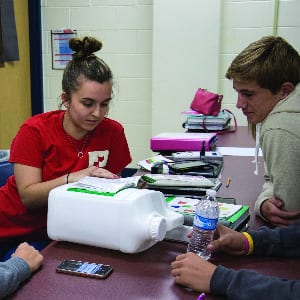
“My priority is connecting with the students and sharing my passion for agriculture and having them learn that agriculture offers such a broad range of jobs,” said Uetrecht as he walked through a storage space that was converted into an agriculture mechanics class that he teaches. After Uetrecht wrote about his agriculture classes in a newsletter, local residents donated tools, motors and even a greenhouse, which will be installed just outside a classroom. Farm Bureaus in Clinton and Warren counties each donated $1,000 to help stock the greenhouse.
“Farm Bureau has been really supportive, and we’re so happy with the response from the community,” Baker said. “The kids are in love with ag education right now.”
Unfortunately, funding for the agriculture classes is a challenge, especially since voters narrowly rejected a school levy in November. Clinton-Massie hasn’t passed an operating levy in 30 years. Baker is optimistic, however, that residents will support a levy potentially going on the May ballot. But even if that fails, he has found a way to keep offering agriculture-related classes. He’s reached out to Great Oaks Career Campuses, one of the nation’s largest career and technical education districts, about taking over the program. The classes would still be at Clinton-Massie but Great Oaks would have control over the curriculum rather than the school district. Baker’s ultimate goal is to have a full-time agriculture teacher and start an FFA chapter.
“Our walls were built on the backs of the ag community,” Baker said. “Our reason for bringing (agriculture) back is that it’s the basis of Ohio’s economy so why are we not making sure students are informed of it as a career base? It’s because of agriculture that we have food on our table and and clothes on our backs.”
For Shanholtz, he’s thrilled that his grandson, Clayton Sheeley, is taking the agriculture mechanics class and may continue the family tradition of farming. Shanholtz has held onto his FFA gavel with the hope that someday he’ll be able to pass it along to the next generation. Based on the interest by Clinton-Massie students, that day may be just around the corner.
Agricultural education programs, and local FFA chapters, are established by the Ohio Department of Education through the Career Technical Education program. There are four basic but important steps that must be taken to establish a school-based agriculture program in the state of Ohio:
Step 1: Learn about the options and select a program – The first step in starting a new CTE program should be to learn about the needs in a community.
Step 2: Know the criteria – The local Career-Technical Planning District and Tech Prep Regional Center can assist with filing the necessary paperwork to start a new CTE program and receive funding.
Step 3: Employ an educator – Schools may hire a new educator to teach the CTE program, have a current educator on staff obtain a CTE license, or partner with a career center or other school district to share a career-technical education teacher.
Step 4: Ensure your program is high quality – Career-technical education programs are held to high standards for quality, to ensure that students are prepared for the workforce and that Ohio businesses have skilled employees.
Source: education.ohio.gov/topics/career-tech


Members have three ways to apply: contacting a certified agent, calling 833-468-4280 or visiting ohiofarmbureauhealthplans.org.
Read More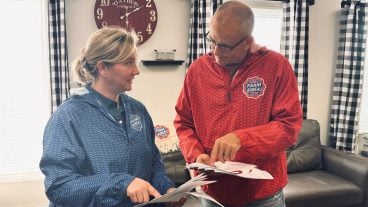
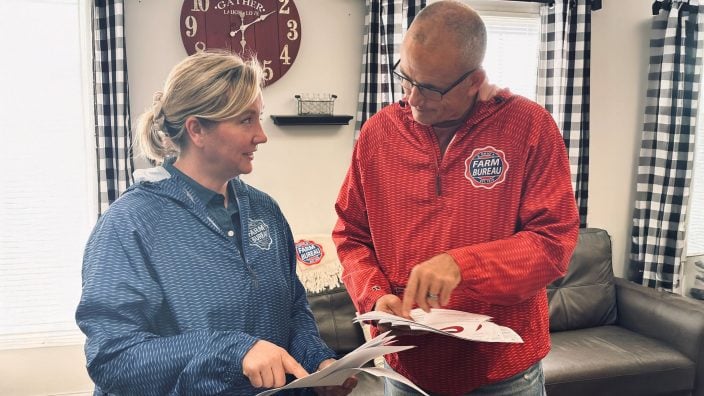
One of the best decisions Shannon and Heather Utter made a few years ago was looking into a Farm Bureau member benefit that has ended up saving them thousands of dollars on their energy bills.
Read More

Ryan Hiser has experienced first-hand the importance of having the opportunity to vote on issues that will affect his family operation and other farmers.
Read More
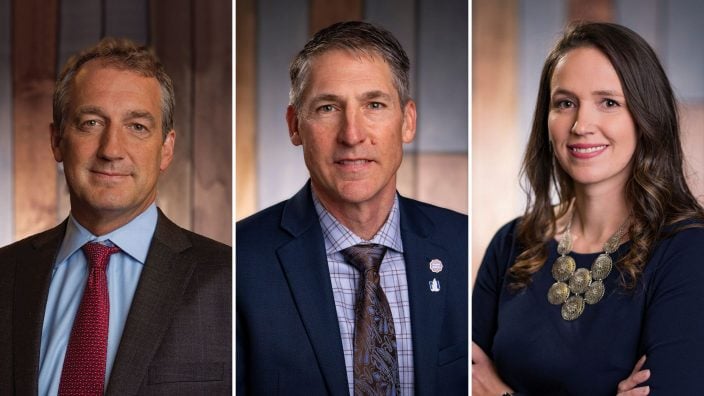
Bill Patterson, Cy Prettyman and Adele Flynn will continue to serve as officers for Ohio Farm Bureau Federation.
Read More
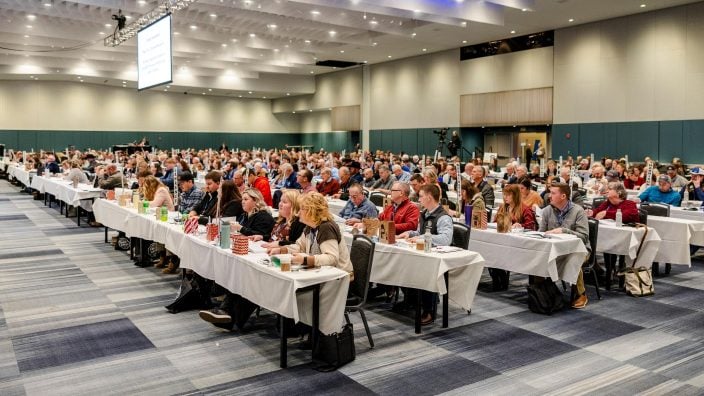
Delegates discussed many topics impacting agriculture including farmland preservation, local foods, and succession planning.
Read More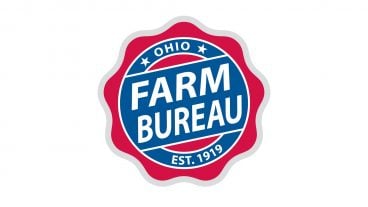
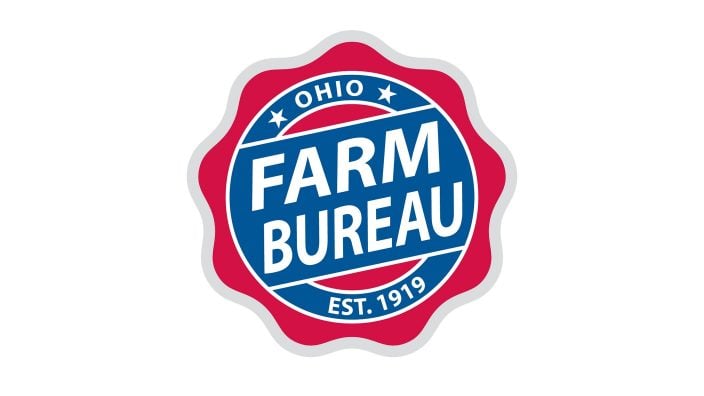
Twenty-six farmers govern the state’s largest farm and food organization.
Read More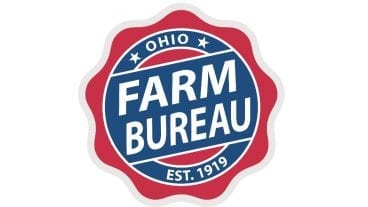
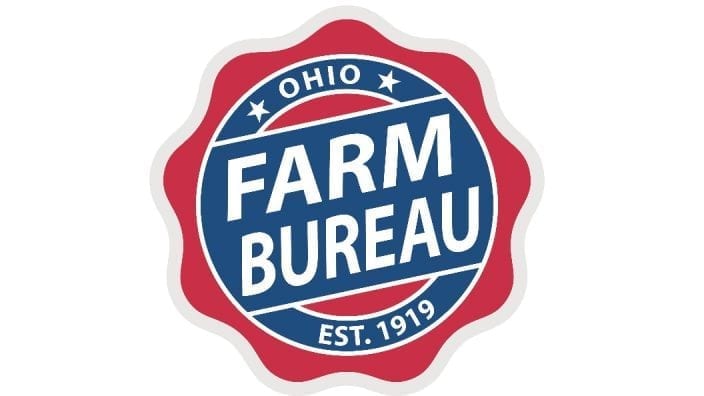
The 2025 recipients are Fred Cooke (posthumous) of Richland County, Marvin Dietsch of Williams County, Steven Knollman of Hamilton County and Michele Miller (posthumous) of Ottawa County.
Read More
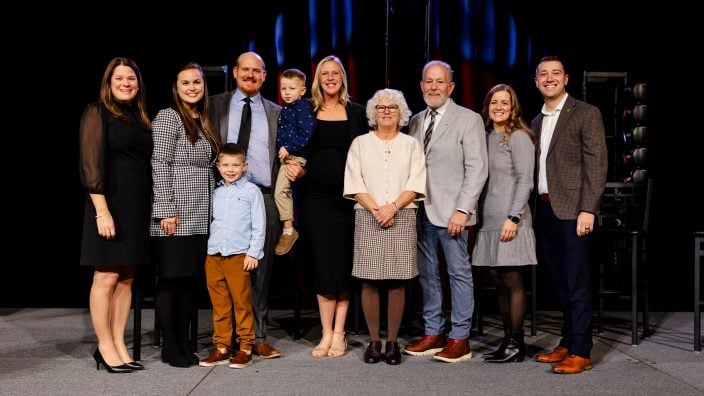
Nathan and Jill Parriman grow seasonal crops, including Christmas trees, pumpkins and cut flowers, providing U-cut experiences that invite customers to engage directly with agriculture.
Read More
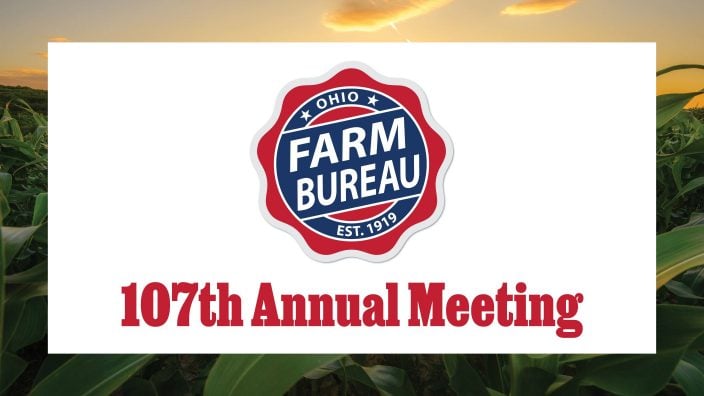
The 2025 Distinguished Service Award recipients are Craig Adams, Mike Townsley, and Kellogg Farms, Kurt Farms and Stateler Family Farms.
Read More

Ohio Farm Bureau Treasurer Adele Flynn participated in the meeting, representing Ohio farmers.
Read More